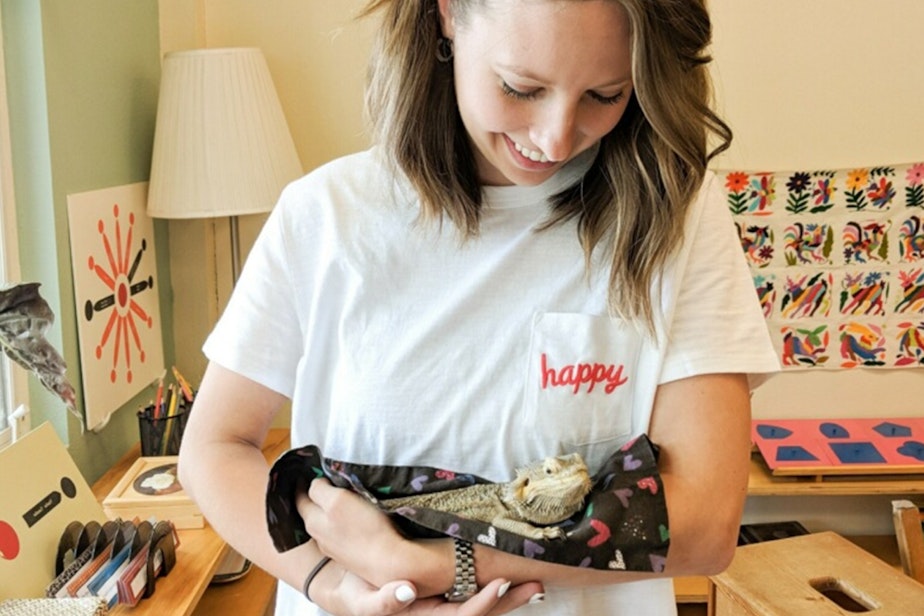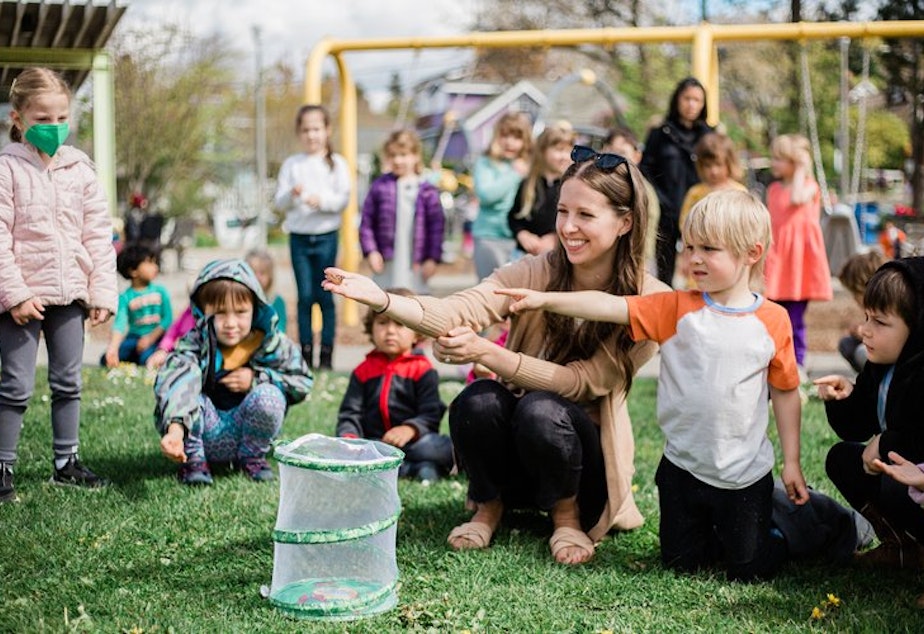Respect, empathy, and nonviolent communication: A look into Montessori teaching

Elly McCarthy is a teacher at Pacific Crest School, a Montessori school in Ballard. RadioActive’s McKenna Kilayko talked with Elly about practicing empathy-based communication and interaction in the classroom.
[RadioActive Youth Media is KUOW's radio journalism and audio storytelling program for young people. This story was entirely youth-produced, from the writing to the audio editing.]
M
ontessori is a child-led approach to teaching that supports the natural development of each child. My mom is a Montessori teacher, so I've grown up around it.
Elly said the first time she observed Montessori teachers at Pacific Crest, she noticed that the way the teachers spoke to and respected the students was different than anything she'd seen in traditional school.
The children "were talked to like a person, and not like a young child," Elly said. "They weren't being infantilized."
Sponsored
Elly said some of the most important things she saw Montessori teachers do were getting on the child’s eye level, addressing their feelings, and offering options.
"I think that that respect [the children] received — and that empathy — was really able to let them pursue what they want to do and find their interests, rather than just have to stick along with what the teacher wants them to do."
Elly said she's worked with children since she was in middle school. But even with all her experience, Elly still sometimes struggles to empathize with kids.
"One hundred times a day I might give the same reminder," Elly said. "Every day, in my head, I will be like, 'Okay, alright. Let's try this again.' You have to just let your ego go at the door and really focus on the fact that you're there for the children."
Sponsored
Empathy and nonviolent communication are big parts of Montessori education, but they're not limited to this teaching style. Elly said adults can foster these values in their communities by modeling for children how to be empathetic, and how to communicate with each other with compassion and without using anger, manipulation, or fear.
Adults can "remember that children are their own person and are developing themselves every day and every moment," she said. "When you make choices for them, or you force things on them, or you're not speaking to them respectfully, that becomes a part of who they are."
Even though practicing empathy can be difficult at times, Elly said she continues to do so because she wants her daughter and other children to grow up as active listeners.
"If you really want to put in the work, which is difficult, just remember that as an educator, as a parent, your job is to best prepare them for the world," Elly said. "And that if you want the world that they're living in to be a good place, you can really structure that now, by the way they learn to interact with other people."
This story was produced in a RadioActive Youth Media one-week Intro to Radio Storytelling workshop for high school-age youth. Production assistance by Carlos Nieto-Mosqueda and Charlotte Engrav. Prepared for the web by Alayna Ly.




